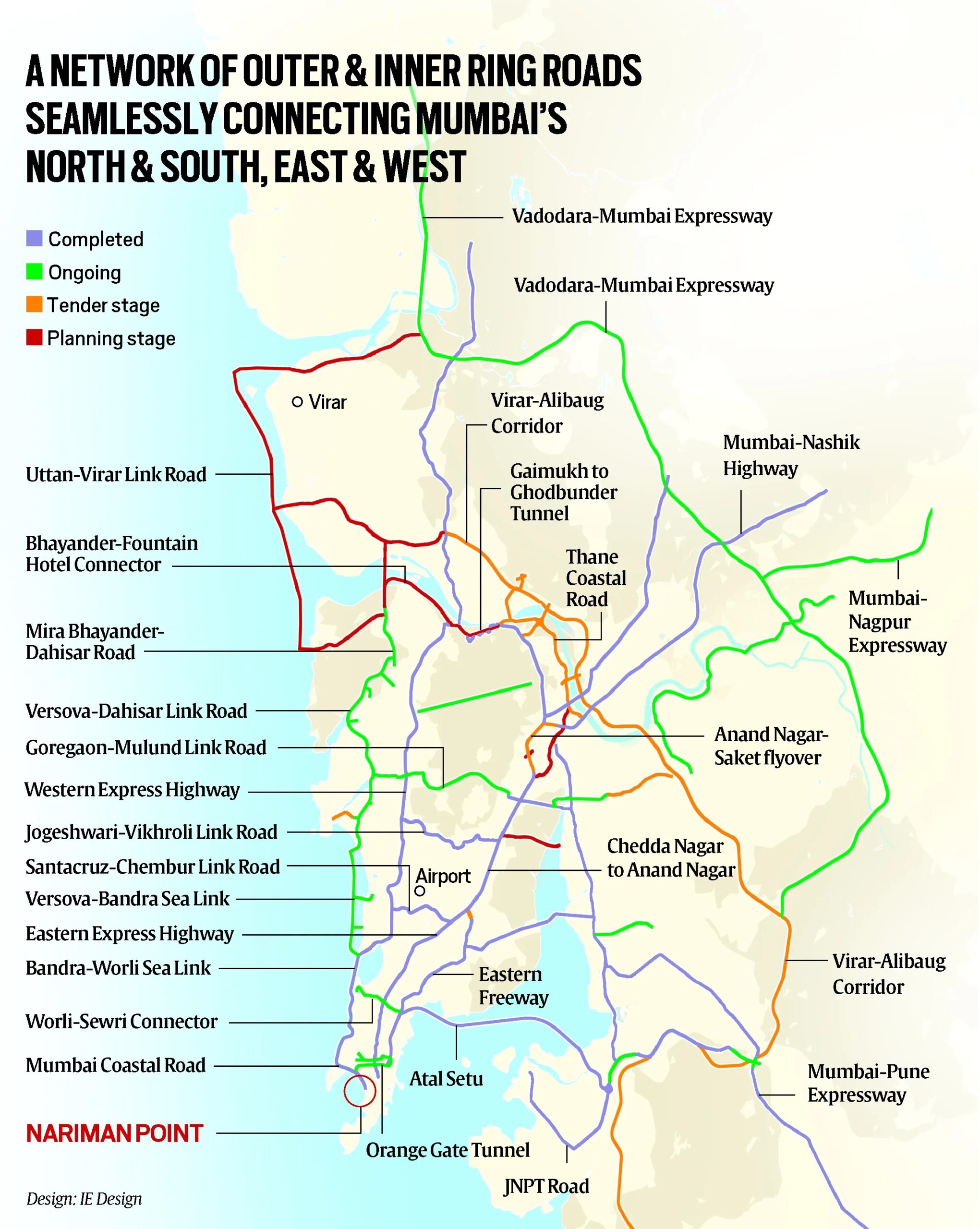Mahiyar Rohinton Patel, Pune
The Mumbai Metropolitan Region Development Authority (MMRDA) has just announced an expansive plan to cut traffic times across Mumbai city. The plan entails the construction of multiple tunnels, roads and bridges coming out to a total of over 90 kms of new construction. The new plan unveiled is set to cost around Rs. 58,000 crores and be completed over a five-year period.
The plan hopes to include all parts of the city, ensuring smooth access even to the interior parts of the city for all incoming and outgoing traffic from both the Konkan region in the south and the Gujarat border in the north. In recent years, there have been many efforts to increase the connectivity in the city with historically special attention given to north to south connectivity in the city, the plan lays down greater emphasis on east-west connectivity.
The various different roads and tunnels that are part of the plan are funded by various different agencies, governments and even international bodies like the Japanese International Cooperation Agency (JICA). Though the MMRDA is the parent agency and the body mandated with the planning and development of the greater Mumbai region, there are many different bodies taking part in the tendering, issuance and upkeep process such as Brihanmumbai Municipal Corporation (BMC), National Highways Authority of India (NHAI) and the Maharashtra State Road Development Corporation (MSRDC).
The network of roads, tunnels, bridges part of the plan are all in different stages of development, projects such as the Mumbai-Nashik Highway, Mumbai coastal road, Eastern Express Highway, Jogeshwari-Vikhroli have been completed and projects such as the Vadodara-Mumbai Expressway, Mumbai-Nagpur Expressway and the Versova Dahisar Link Road are currently under construction.
Mumbai contributes to around 4% of India’s GDP which comes out to be to $140 Billion dollars, the Niti Aayog and many other financial observers have projected that the MMR region should cumulatively be able to reach a GDP of $300 Billion dollars by 2030. Infrastructure development and lower cost of transportation and logistics will be very essential to the growth and economic future of the city.
